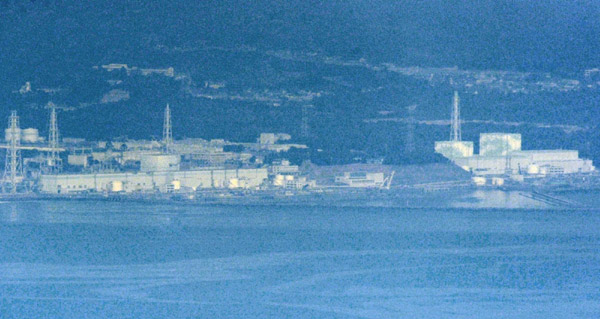Asia-Pacific
Cooling down reactors remains top priority
(Xinhua)
Updated: 2011-03-29 22:29
 |
Large Medium Small |
|
 An aerial view from a Kyodo News helicopter is seen from a height of some 1,500 meters (4,920 feet) and distance of more than 30 kilometres (18 miles) from the Fukushima Daiichi Nuclear Power Station in Fukushima Prefecture in this photo taken by Kyodo on March 29, 2011. [Photo/Agencies] |
TOKYO - Japan's Nuclear and Industrial Safety Agency said Tuesday that to cool down the reactors remains top priority to prevent further damage to the fuel rods.
"The coolant water injection is still the No.1 priority for us," said Hidehiko Nishiyama, a spokesman for the agency, at a news conference. "If we fail to cool down the reactors, various kinds of radioactive substances will be discharged into the environment. "
He emphasized radioactive water from the damaged Fukushima Daiichi nuclear power plant had not been confirmed to have leaked into the Pacific Ocean from the plant's underground drainage system.
Regarding the highly toxic plutonium detected on Monday, Nishiyama maintained the density is equivalent to that in the soil under normal environmental conditions and poses no major impact on human health.
Plutonium emits alpha radiation and low-energy x-rays which are easily absorbed by human tissue.
Roughly 80 percent of the plutonium that enters the bloodstream goes either to the liver, bone or bone marrow, where it is retained for years, damaging tissue nearby and possibly resulting in cancer.
| 分享按钮 |



